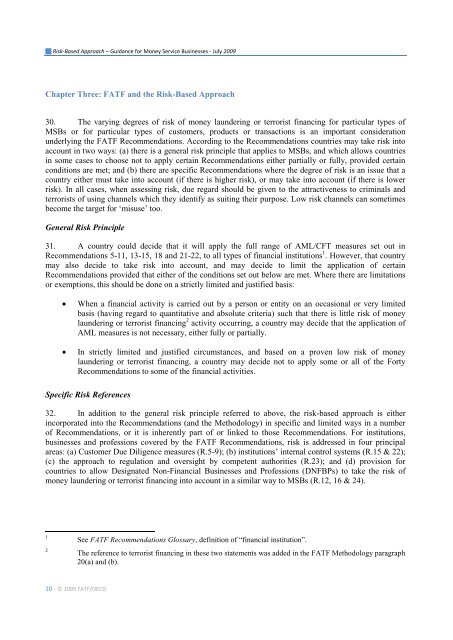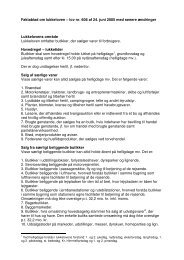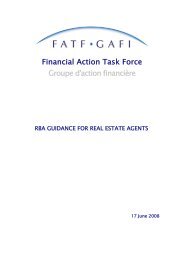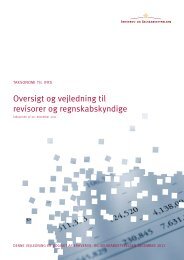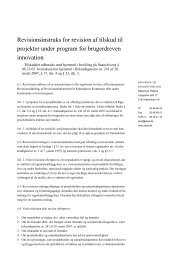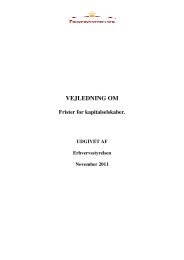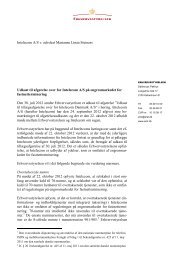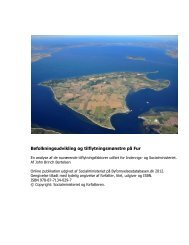Risk-Based Approach â Guidance for Money Service Businesses
Risk-Based Approach â Guidance for Money Service Businesses
Risk-Based Approach â Guidance for Money Service Businesses
You also want an ePaper? Increase the reach of your titles
YUMPU automatically turns print PDFs into web optimized ePapers that Google loves.
<strong>Risk</strong>-<strong>Based</strong> <strong>Approach</strong> – <strong>Guidance</strong> <strong>for</strong> <strong>Money</strong> <strong>Service</strong> <strong>Businesses</strong> - July 2009Chapter Three: FATF and the <strong>Risk</strong>-<strong>Based</strong> <strong>Approach</strong>30. The varying degrees of risk of money laundering or terrorist financing <strong>for</strong> particular types ofMSBs or <strong>for</strong> particular types of customers, products or transactions is an important considerationunderlying the FATF Recommendations. According to the Recommendations countries may take risk intoaccount in two ways: (a) there is a general risk principle that applies to MSBs, and which allows countriesin some cases to choose not to apply certain Recommendations either partially or fully, provided certainconditions are met; and (b) there are specific Recommendations where the degree of risk is an issue that acountry either must take into account (if there is higher risk), or may take into account (if there is lowerrisk). In all cases, when assessing risk, due regard should be given to the attractiveness to criminals andterrorists of using channels which they identify as suiting their purpose. Low risk channels can sometimesbecome the target <strong>for</strong> „misuse‟ too.General <strong>Risk</strong> Principle31. A country could decide that it will apply the full range of AML/CFT measures set out inRecommendations 5-11, 13-15, 18 and 21-22, to all types of financial institutions 1 . However, that countrymay also decide to take risk into account, and may decide to limit the application of certainRecommendations provided that either of the conditions set out below are met. Where there are limitationsor exemptions, this should be done on a strictly limited and justified basis:When a financial activity is carried out by a person or entity on an occasional or very limitedbasis (having regard to quantitative and absolute criteria) such that there is little risk of moneylaundering or terrorist financing 2 activity occurring, a country may decide that the application ofAML measures is not necessary, either fully or partially.In strictly limited and justified circumstances, and based on a proven low risk of moneylaundering or terrorist financing, a country may decide not to apply some or all of the FortyRecommendations to some of the financial activities.Specific <strong>Risk</strong> References32. In addition to the general risk principle referred to above, the risk-based approach is eitherincorporated into the Recommendations (and the Methodology) in specific and limited ways in a numberof Recommendations, or it is inherently part of or linked to those Recommendations. For institutions,businesses and professions covered by the FATF Recommendations, risk is addressed in four principalareas: (a) Customer Due Diligence measures (R.5-9); (b) institutions‟ internal control systems (R.15 & 22);(c) the approach to regulation and oversight by competent authorities (R.23); and (d) provision <strong>for</strong>countries to allow Designated Non-Financial <strong>Businesses</strong> and Professions (DNFBPs) to take the risk ofmoney laundering or terrorist financing into account in a similar way to MSBs (R.12, 16 & 24).12See FATF Recommendations Glossary, definition of “financial institution”.The reference to terrorist financing in these two statements was added in the FATF Methodology paragraph20(a) and (b).10 - © 2009 FATF/OECD


